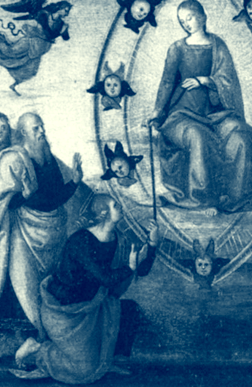 According to our faith, what we celebrate today is God’s extraordinary grace given to Mary as He carried her, body and soul, into heaven. Why should He have done that? Because she is the Immaculate Conception. She was at all times without sin, so she never bore the effects of the Fall, as do the rest of us. Since she didn’t bear the effects of the Fall in life, neither should she in death. This is why Jesus has preserved His Mother’s beautiful body from corruption.
According to our faith, what we celebrate today is God’s extraordinary grace given to Mary as He carried her, body and soul, into heaven. Why should He have done that? Because she is the Immaculate Conception. She was at all times without sin, so she never bore the effects of the Fall, as do the rest of us. Since she didn’t bear the effects of the Fall in life, neither should she in death. This is why Jesus has preserved His Mother’s beautiful body from corruption.
For each of us, our hope is that, when we die, our souls will go to heaven. But, the end result of this teaching of the Assumption is that there aren’t just souls in heaven. We believe there are actually two human bodies in heaven—the Body of Jesus, and also the body of Mary.
What audacity it takes, on our part, to believe in the Assumption! We’re saying that our human flesh, weak as it is, is precious to God. Not only did He take it on at the Incarnation, but we are claiming that He has actually allowed it to enter into heaven. That is how much God respects us and our bodies, which He created.
We’re talking about the same human flesh we dishonor every time pass judgment on another person’s appearance. It’s the flesh we disrespect when sisters pinch their brothers and brothers punch their sisters. It’s the precious human body we violate when we get mixed up with pornography. It’s the sacred human body that mothers and fathers so often choose to destroy through abortion because it’s inconvenient.
We learn from the Assumption of Mary that God has chosen to respect our human bodies. Inspired by our Lord’s own example, may we learn truly to value our bodies and the bodies of those around us. They were made by God, and they were made for heaven. Where our Blessed Mother has gone, we hope to follow.

